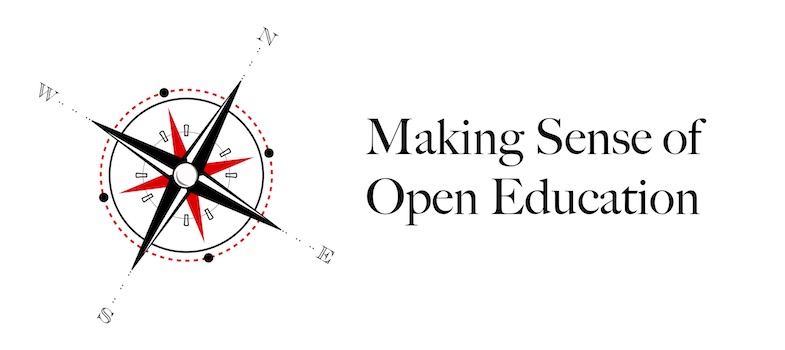CoP as demarginalizers
The first online CoP I got involved in was on the forums of the site LDONLINE.org back in oh, 1996 or so. Half a dozen teachers got to know each other answering parent questions and sharing, sharing. We were enough to fend off some serious trolls (tho' I don't know if we could have in this day and age) b/c we'd just start more discussions and their pontifications about Having The Perfect REading Solution drifted to the bottom. The community thrived for several years (though the site folks thought it was a royal technical / monitoring PAIN ;)) ... and hten blew up and died when they changed the format and it was harder to navigate.
Fast forward a decade or so and ... I'm in my little off-the-radar corner helping developmental students ... and I find https://lincs.ed.gov/ . The site is all about "adult ed" and while institutionally I'm not officially "adult ed," there's so much we have in common. I could lurk and learn about things I don't know much about -- a lot! -- and share stuff I am learning.
Yes, I can feel marginalized -- imagine how faculty might just feel about somebody helping the lower-level learners, who isn't faculty adn has a ... special ed background. So... I *ran* towards LINCS where... nobody on the INternet knows I'm a dog! My skills and knowledge speak for themselves... and when there was an opportunity to apply for a project learning about and curating/making OER for adult ed STEM... I did. Then there was a MOOC about *designing* lessons specifically for adult learners including looking at assorted possible profiles of learners to empathize with (including folks with learning disabilities)... so I signed up and did that... and then there were two more projects, one of which is winding up this week, creating/curating math OER for adult ed.
Yes, I do feel like I'm out in the margins in the OER world, too, especially when discussion narrows in on "textbook adoption" and institutional policies... but then I get back to playing with the Open Source geogebra applets https://www.geogebra.org/m/T9jPesSF ... and I submitted a "beta project" -- because it asks "what stage is your project?" and I could say "just barely beginning' -- to the Rebus Community about ... making a full-on interactive basic math program for marginalized math learners.
Another CoP is #mtbos -- the "math twitter blog o sphere." I tripped over it when there was a contest to critique and improve a Khan Academy math lesson... and there is so much sharing there! People send links to files on dropbox, etc. with images, exercises, etc., most w/o any reference to OER or CC licensing.
Time to get back to making OER :)
Great work Susan, keep at it. I was just reading an article today (and don't want to take the time to dig for it at the moment) about how ed tech startups that get funding focus on solutions for affluent learners and schools. Ed tech startups that focus on community learners with low levels of education, and learners with developmental challenges (and therefore typically low SES) don't get as much funding, it's just not as interesting to investors. There is tremendous need for the kind of work you are doing! Even with OER there's a rich get richer paradigm. What can we do to help?
- Jump to: Parent to post 1
- Permalink to post 2
